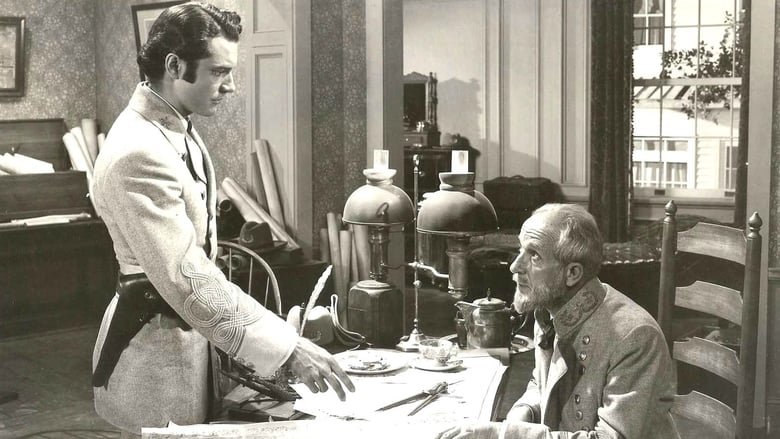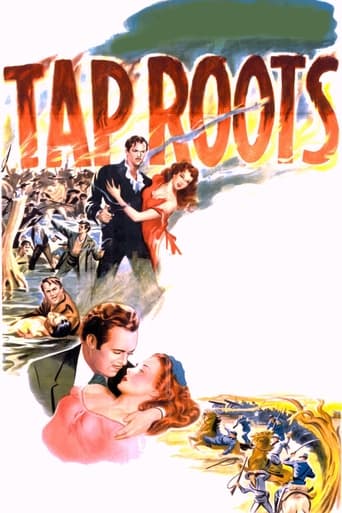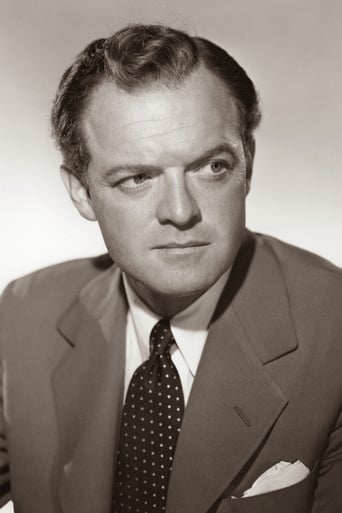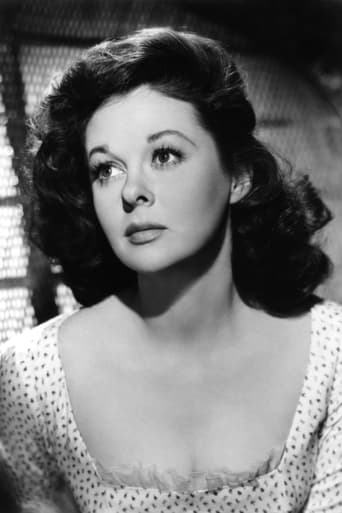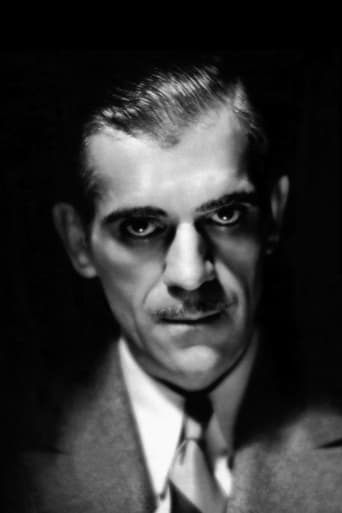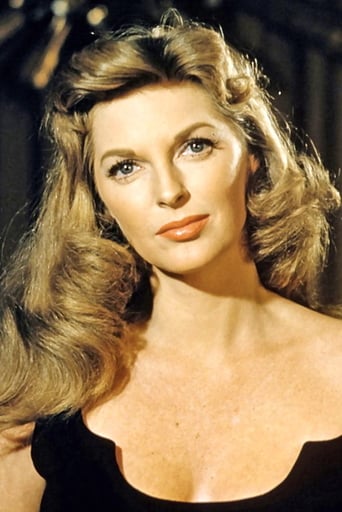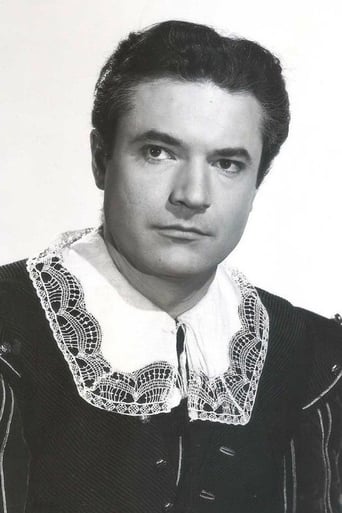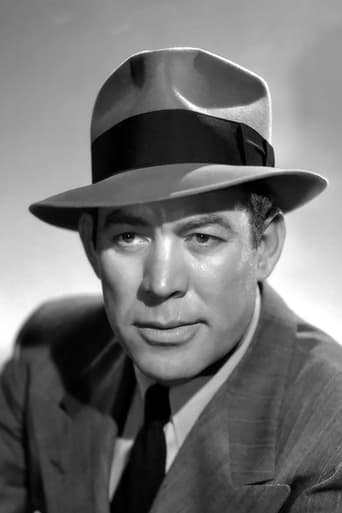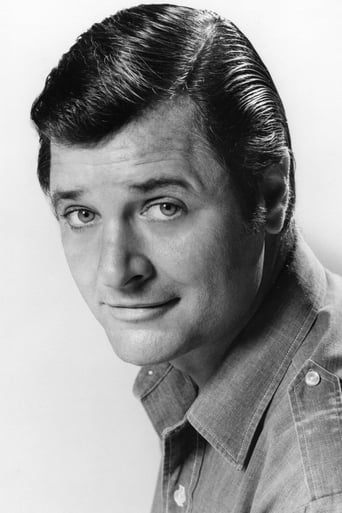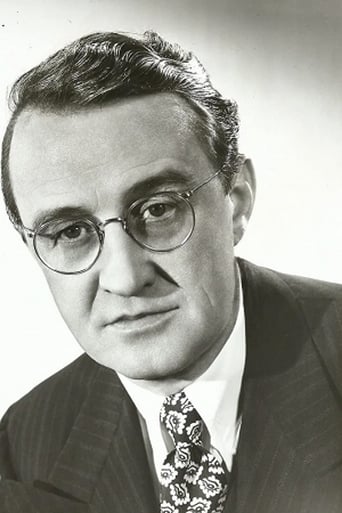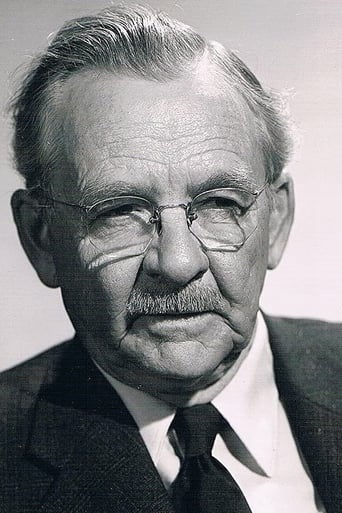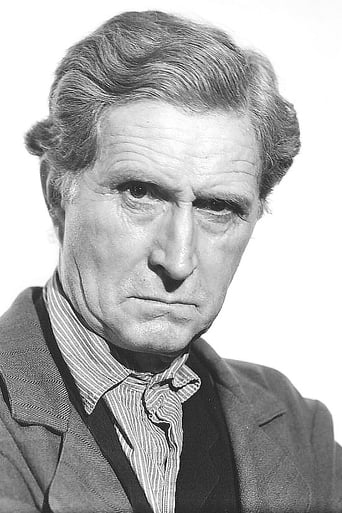Set at the beginning of the Civil War, Tap Roots is all about a county in Mississippi which chooses to secede from the state rather than enter the conflict. The county is protected from the Confederacy by an abolitionist and a Native American gentleman. The abolitionist's daughter is courted by a powerful newspaper publisher when her fiance, a confederate officer, elopes with the girl's sister. The daughter at first resists the publisher's attentions, but turns to him for aid when her ex-fiance plans to capture the seceding county on behalf of the South.
Similar titles
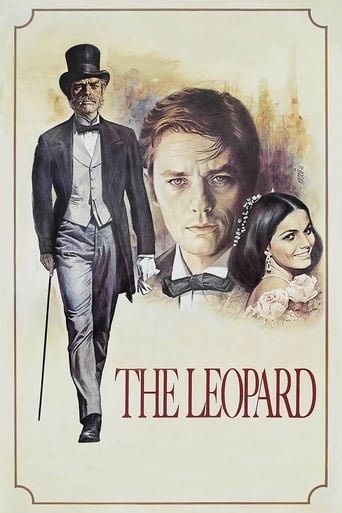
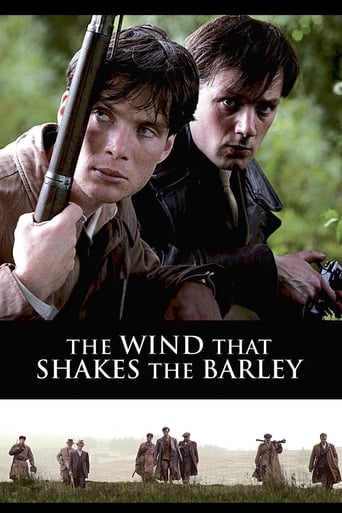

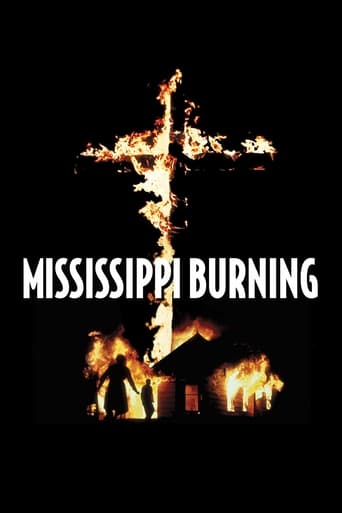
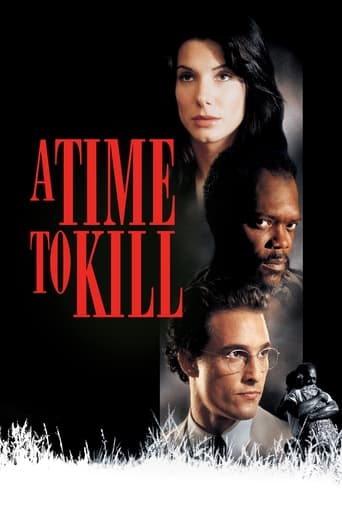
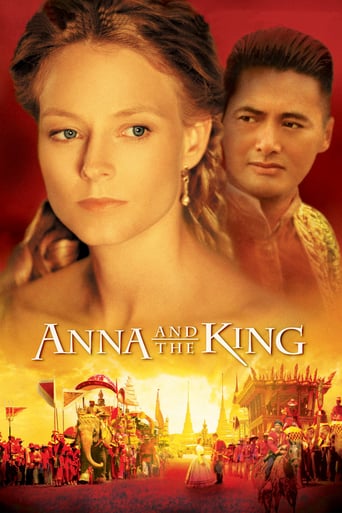
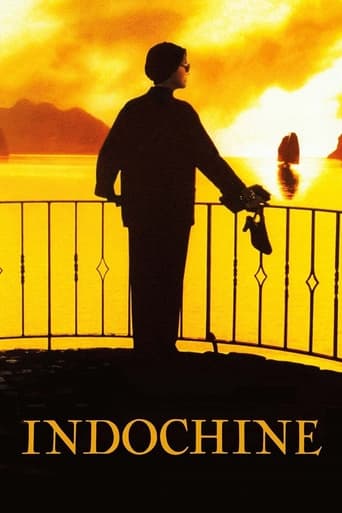
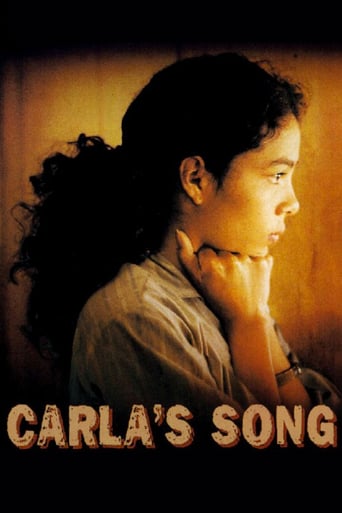


Reviews
Fun premise, good actors, bad writing. This film seemed to have potential at the beginning but it quickly devolves into a trite action film. Ultimately it's very boring.
I think this is a new genre that they're all sort of working their way through it and haven't got all the kinks worked out yet but it's a genre that works for me.
Excellent and certainly provocative... If nothing else, the film is a real conversation starter.
The film's masterful storytelling did its job. The message was clear. No need to overdo.
If you've read Gone with the Wind trivia, you know that hundreds of actresses vied for the role of Scarlett O'Hara. A twenty-year-old Susan Hayward was one of them, and to make up for her loss, Hollywood made Tap Roots ten years later. She stars as a feisty, flirty Southern belle on a large plantation just before the outbreak of the Civil War. There are two men in the picture: one she loves through thick and thin, even when he chooses another woman; and a strong, gruff one she bickers with who vows to make her love him. Sound familiar?Well, sorry Suzy, but Tap Roots is no Gone with the Wind. The acting is ridiculously over the top, the characters are thinly written, and the only likable one in the film is Boris Karloff, a friend of the family who's Native American and completely accepted by everyone-which is not very realistic for that time period. I was rooting for Suzy and Boris to get together, since he was the only one in the movie who seemed to care about her, but since the film was trying to mirror the 1939 epic, that ending seemed unlikely.Unless you absolutely love Susan Hayward, you're not going to want to watch this wannabe. Raintree County is a better pseudo-remake, and Scarlett is a thrilling sequel. Tap Roots is just stinky.
Some suggest that this film was meant to be a poor man's "Gone With the Wind". A similar charge has often been leveled at the later film "Band of Angels", starring Clark Gable and Yvonne De Carlo There's probably some truth to this charge, but any film that deals with a subject somewhat resembling GWTW is going to be negatively compared to it. Remember, these 2 films are only half or less as long as GWTW. Why not just accept them on their own merits. They are all distinctive enough in their details to stand on their own.There were, of course, Southern Unionists before and during the Civil War. Sometimes they were concentrated in particular regions. An obvious example is the northwestern part of Virginia, which seceded to become West Virginia. One Unionist was Newton Knight, who lived in Jones County, MS. He enlisted in the Confederate army, but eventually deserted, claiming to be a Unionist forced to fight for the Confederacy. He was the leader of a group of mostly deserters, mostly from Jones county and surrounding counties, who acted as guerillas against government troops and officials. For a time, he was jailed as a deserter, and his homestead burned, as an example. At one point, Knight and his supporters hid in a swamp, which government troops had great difficulty penetrating. This is the historical background from which this story is derived.The Dabneys are the ruling extended family in the Levington Valley of MS. The patriarchal grandfather, Sam Dabney((Russell Simpson), is infirm on the eve of secession of MS from the Union, and dies after an emotional outburst against secession and its probable traumatic effect on his empire. His son and heir apparent: Hoab Dabney(Ward Bond), also is vehemently opposed to secession and against the war for similar reasons, and talks of seceding from the state if it secedes from the Union. Hoab's daughter, Morna(Susan Hayward), is engaged to a cavalry officer(Whitfield Connor, as Clay) in the US army, who will join the Confederate army, against the wishes of the Dabneys. However, Morna severely hurts her back from a horse fall, and the doctor claims she will never walk again(There is conflicting evidence whether one or both legs are affected). Clay pretends that his love for her has not now diminished, but he soon begins dating her sister Aven(Julie London), and soon they are married. Meanwhile, journalist Keith Alexander(Van Helfin) has professed his love for Morna whatever her physical condition in the future may be. Morna's attendants keep massaging her legs and encouraging her to try to walk. One day, Keith's talk makes her angry, and she stands. With more exercises, she eventually is able to walk, albeit with a limp.Meanwhile, Clay's troops have blockaded the southern pass out of the valley, so that the residents can't get supplies from the gulf port. Hoab and Keith have organized the valley residents into a fighting force against Clays troops. But Clay's artillery, especially, and setting of fires destroy the Dabney's mansion and other buildings. Hoab's and Keith's men retreat into a swamp, which Clay's troops are able to penetrate, and a battle ensues. I leave the climax and conclusion for you to see. Available at You Tube in Technicolor. The most interesting relationship is that between Morna and Clay. The combination of her incapacitating injury and Clay's joining of the Confederate Army wrecked their romantic involvement. When it was discovered that Clay's army was about to attack the valley from the north, whereas Keith and his men had gone south for supplies, she rode to Clay's camp with the idea of convincing him that she still loved him more than Keith. She seduced him, with the intent of delaying the assault on the valley until Keith's men could return. But Clay saw through her plan and used the time to alter his attack plan and move his cannons forward, in position to bombard the Dabney Mansion.
Among the hundreds of hopefuls for the role of Scarlett O'Hara was young Susan Hayward who was about as unknown as you could get when David O. Selznick was testing potential Scarletts. Almost a decade later Hayward got to play a lead as a southern belle in Tap Roots. Although there are some superficial resemblances to Scarlett O'Hara in Morna Dabney this film is not Gone With The Wind by a stretch.This is set in Mississippi at the beginning of the Civil War. The Dabneys are the local Cartwrights in the area, a proud plantation family with the requisite slaves. However they regard the Lebanon valley area and all its residents as serfs blacks and whites and Russell Simpson the head of the clan correctly sees that if Lincoln is elected and there is civil war, it's going to end badly for the south and life which includes slavery ownership for him is at an end. So his solution is for his part of Mississippi to secede from the rest of the state and declare neutrality. But Simpson dies and his son Ward Bond sends out a call to all who don't favor secession to join him in his valley fortress and keep the impending Civil War out.Bond has two daughters, Susan Hayward and Julie London and a son Richard Long. Hayward is courted by cynical newspaper owner/editor Van Heflin, the Rhett Butler of the piece and Whitfield Connor a soldier set to leave the army and fight for the south. Hayward has them both panting hot and heavy for her and her love life gets hopelessly entangled with the politics of the Civil War.There were pockets of Union sentiment all over the South during the war. Not everyone wanted to fight for some planter's right to own people. But nowhere was there anything like this recorded in the history of the era. Union sympathizers simply hunkered down and waited for the war to end however it would. Hayward and Heflin are a pair of my favorite players and they were both good, doing as best they could to carry a preposterous plot premise. Ward Bond has a great scene going totally mad as he sees his valley being shot to smithereens by the Confederate army.Boris Karloff is also in the cast. He plays a Choctaw Indian medicine man who seems to be the only one around and he's a retainer of Russell Simpson, a kind of Dabney family guardian. I'm sure the book on which Tap Roots is adapted better explains his presence, but he seems grafted into the film as far as I could tell.Tap Roots is far from the worst film Hayward and Heflin were ever involved in. Still if Universal Pictures thought they had their own Gone With The Wind, they fell way short of the mark.
The other comment is quite good in that I can find little with which to disagree. True, there is a weak script, but then, there were a lot of them floating around Hollywood in the late 40s. Van Heflin was one of those actors who was hard to pigeonhole. He could play villains or heros. His role in Patterns was a classic. Here, as the illegitimate son of a "powerful" individual-- we're never told who, he tries to conjure up some of the dash of Gable from years before but winds up looking like a cross between Rhet and Billy Goat Gruff. Susan Hayward's performance is weak, compared to some of her later roles, as is blustering Ward Bond. Whitfield Conner is charming, as he was in the few roles he left us but largely immemorable. And, then there was Karloff: here, out of heavy make-up as a Native American (we called them Indians back then)but still wide-eyeing it and looking mysterious. (I remember as a kid when he gets shot, the audience sighing their disapproval; but the writers snuffed him anyway). All in all, the film is not GWTW, and, in my view nor should it be. It was a bit of late 40s costume fantasy and certainly worth the $.32 I paid to see it in '48. I loved it then and loved when I saw it on the late show, years later. It's entertaining and should not be taken beyond its face value. It does not pretend to be a classic and will not be taken as such. But, I found it entertaining both as a kid and as an adult (or big kid, as my wife insists).
Top Streaming Movies











